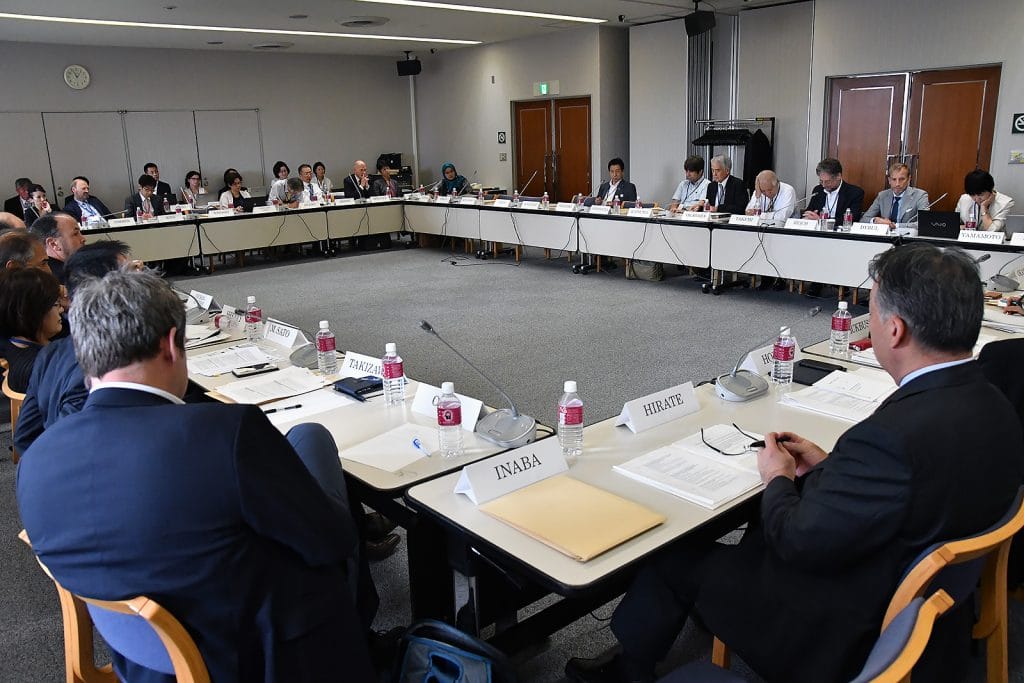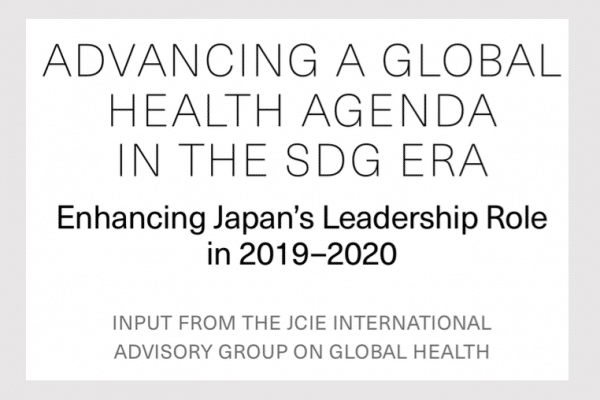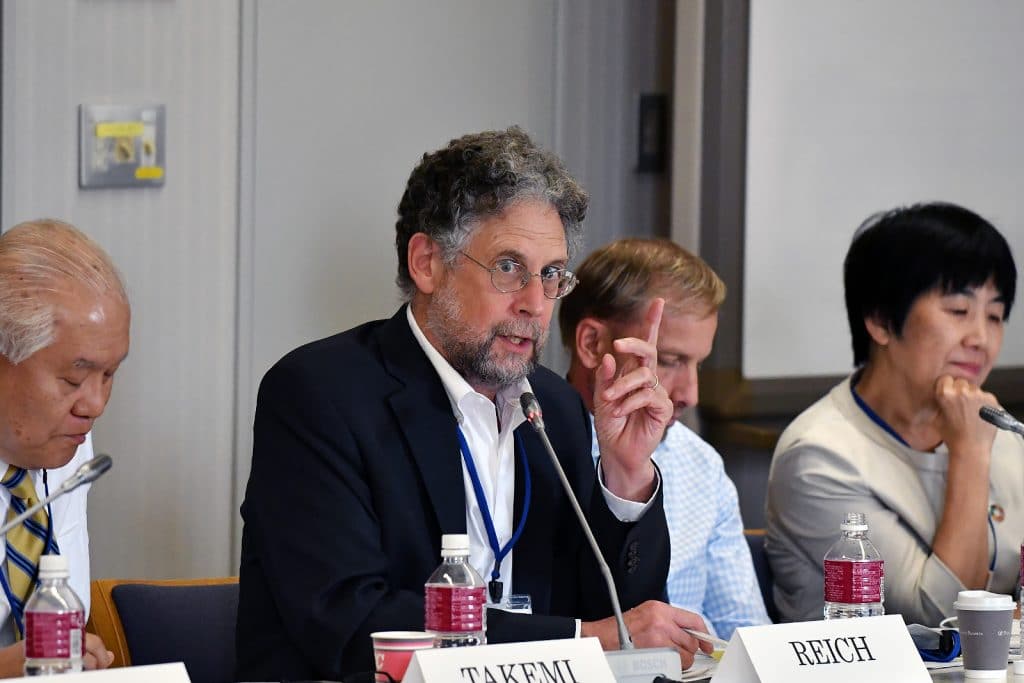INTERNATIONAL ADVISORY GROUP ON GLOBAL HEALTH
2018
In 2019 and 2020, Japan hosts a range of critical international meetings, from the G20 Summit to the 7th Tokyo International Conference on African Development (TICAD 7), and the Nutrition for Growth Summit (N4G). In order to help the Japanese government make strategic use of these events in advancing global health, in April 2018 the Japan Center for International Exchange (JCIE) convened a half-year consultative process in collaboration with five key Japanese government agencies: the Cabinet Secretariat; the Ministry of Foreign Affairs; the Ministry of Health, Labour and Welfare; the Ministry of Finance; and the Japan International Cooperation Agency (JICA). This entailed organizing an ad hoc, 15-member “JCIE International Advisory Group on Global Health (IAG).” The IAG comprised leading global health practitioners and experts from around the world, who offered their insights into ways that Japan can leverage these events to improve global health. Their deliberations are compiled in a report, “Advancing the Global Health Agenda in the SDG Era: Enhancing Japan’s Leadership Role in 2019–2020.”
Throughout their deliberations and discussions, the IAG members generally agreed on the importance of reinforcing existing multilateral collaboration, emphasizing the core role of the World Health Organization (WHO) and the integration of universal health coverage (UHC) in the Sustainable Development Goals (SDGs). The IAG also acknowledged that national health systems should provide the full spectrum of health care and promotion services—including prevention, community-based primary health care services, critical specialty health care, and resilient systems that can respond to natural and manmade emergencies and epidemics. Finally, the IAG reiterated the importance of utilizing multistakeholder approaches—engaging with WASH (water, sanitation, and hygiene), nutrition, and urban development efforts, for example—in order to make progress in health and, especially, in health promotion.

The IAG Process
The IAG process began with each member submitting written input on global health and related priorities that they felt Japan should consider as it builds its global health agenda. Then the members, along with Japanese government officials, gathered via three teleconferences to review the ideas presented. The IAG members were asked to consider two guiding questions:
- What can be done to support countries in implementing universal health coverage (UHC), taking into account the importance of its linkages to primary healthcare and health security?
- How can the overall health and welfare of societies be advanced by focusing in a holistic manner on linkages between the health sector and a range of related sectors such as water, sanitation, nutrition, and community development?
On September 7, 2018, the members of the IAG gathered in Tokyo, along with Japanese government officials, legislators, academic experts, civil society leaders, business executives, and representatives from international organizations, to exchange views in person on what Japan should prioritize in its global health agenda in order to best utilize the G20 process and the other important upcoming international meetings.
The final report, which includes three specific proposals, a list of other notable ideas, and key points from the IAG’s deliberations, was presented to the Japanese government in October 2018.
IAG Members
|
Rina Agustina |
Chair, Human Nutrition Research Center, Faculty of Medicine, University of Indonesia |
|
Catarina de Albuquerque |
CEO, Sanitation and Water for All (SWA) Global Partnership [Portugal] |
|
Mark Dybul |
Co-director, Center for Global Health and Quality; Professor, Department of Medicine, Georgetown University Medical Center [USA] |
|
Githinji Gitahi |
Group CEO, Amref Health Africa [Kenya] |
|
Peng Gong |
Professor and Chair, Center for Earth System Science, Tsinghua University [China] |
|
Lawrence Haddad |
Executive Director, Global Alliance for Improved Nutrition (GAIN) [UK] |
|
Minah Kang-kim |
Professor, Department of Public Administration, Ewha Womans University [Korea] |
|
Ilona Kickbusch |
Director, Global Health Centre, Graduate Institute of International and Development Studies in Geneva [Germany] |
|
Gabriel Leung |
Dean, Li Ka Shing Faculty of Medicine, Hong Kong University [China] |
|
Francis Omaswa |
Chairperson, African Center for Global Health and Social Transformation (ACHEST) [Uganda] |
|
Gorik Ooms |
Professor of Global Health Law and Governance, London School of Hygiene & Tropical Medicine [Belgium] |
|
Andrés Pichon-Riviere |
Professor of Public Health, University of Buenos Aires; Director of the Health Economics Department, Institute for Clinical Effectiveness and Health Policy (IECS) [Argentina] |
|
Michael Reich |
Taro Takemi Research Professor of International Health Policy, Department of Global Health and Population, Harvard T.H. Chan School of Public Health; Senior Advisor, IAG task team [USA] |
|
Devi Shetty |
Chairman, Narayana Health [India] |
|
Winnie Yip |
Professor of the Practice of International Health Policy and Economics, Department of Global Health and Population; Director, China Health Partnership, Harvard T.H. Chan School of Public Health [Hong Kong, China] |
The work of the International Advisory Group was carried out with the support of the Bill & Melinda Gates Foundation.


